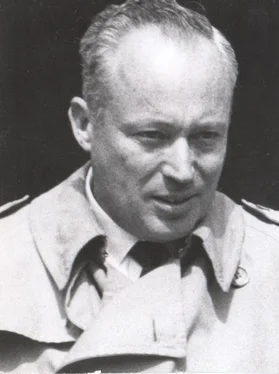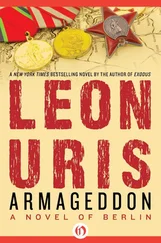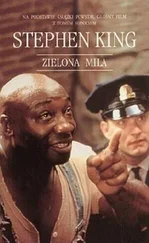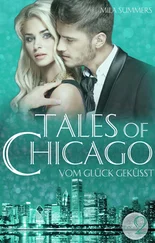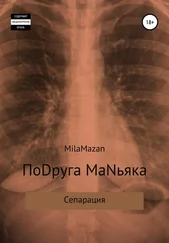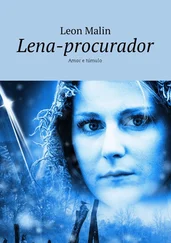Our Fighters shout in the darkness and the Germans fire blindly at our voices, revealing their positions and their fear.
A report from the Aryan side tells us that Funk asked for SS Volunteers for night patrols and no one volunteered!
The report also says that the Polish people are awed by our fight. To hell with awe! Less awe and more help is what we need.
As I write this I realize that tomorrow begins the seventh day of the rebellion. The four days’ work Alfred Funk promised the Death’s-Head Brigade has proved false. This week we have prayed for will come to pass. God! Will we get help!
THE SEVENTH DAY
Simon Eden spoke to his commanders before dawn. We are to drop back to even more desperate tactics. We are to stay in hiding until the German is so close we can smell his breath, count the hairs on his head. Attack by knife, leap on him barehanded, and choke him to death. Fire only at point-blank range. We cannot afford the luxury of missing a single round. We cannot make a bad throw of a single grenade. We must constantly shift our positions at night to alternate bunkers. Finally, a further cut in rations. Water: one glass per day per Fighter.
Today the Germans finally cleaned out the uniform factory. Rodel’s people did not have the fire power to stop them. We had managed to take most of the laborers from the Brushmaker's factory into buildings and bunkers.
The bunkers are becoming unbearable. Mila 18 has four hundred people (capacity 220). It is only an iota above suffocation level. The thermometer today read 140 degrees.
THE SEVENTH NIGHT
The Germans have had enough of the ghetto in the dark. We own the night. We are the kings of darkness? They do not come in here out of sheer cowardice and fear. Like college boys making drunken vows, we have fulfilled our “goal” of holding the ghetto for a week. Israel reborn has lived for seven days under fire. Ridiculous, isn’t it. We are perilously low on ammunition. Food and water are not going to improve. We cannot replace a fired round of ammunition. We cannot replace a killed Fighter. Our wounded die quietly with no complaints about the little aid we can give them. But I am ashamed of my past cynicism. I have never seen morale so high. I have never been so proud to be a Jew. At night we walk tall and straight as free men. We sing and we dance. We tell jokes about our hunger and we laugh about our fear. Strange, so very strange, how a hopeless cause can be the cause of the most exhilarating experience I have ever known (forgive me, Sylvia).
ALEXANDER BRANDEL
Chapter Seventeen
SIMON EDEN WAS CHAGRINED. A week was over and his army was still intact and full of fight. Simon, who had dreaded the burden of command, had reacted to a hundred cries without hesitation. When in doubt, he personally led his troops on foray after foray. He had become transformed into a symbol of leadership.
The week’s end called for a reappraisal. His Fighters no longer had the luxury of concentrating gunfire. This meant that the Germans could cut off and fine-comb surrounded areas with a determined effort. No longer able to protect the civilians in the southern area, Simon ordered Rodel to abandon a suicidal position and pull his Fighters into the central area.
Wolf was ordered to cut and destroy the phone line between Mila 18 and the Franciskanska bunker despite the fact that runners often needed hours to negotiate a few blocks during the daytime. There was too great a risk of the Germans finding the phone line and using it to lead them into the bunkers.
A new standing order: all Fighters were to scour for food and water during the night in bunkers which the Germans had discovered during the day.
In his favor was his continued night control of the ghetto, plus the fact that the Germans gave up using tanks and armored cars. And Andrei Androfski, his workhorse, his nonpareil warrior. The sight of Andrei nearby never failed to calm him.
Simon worked throughout each night, having developed a remarkable facility to sleep in short snatches. Rodel came to Mila 18, to the first floor, where Simon stayed during the night to escape the heat of the bunker.
Rodel reported that all his Fighters were moved and deployed in the central area.
“Good. Get some sleep,” Simon said. “It’s four o’clock in the morning.”
“I wanted to talk to you about something else. I hear rumors that Samson Ben Horin is taking the Revisionists out of the ghetto.”
“That’s right,” Simon answered. “I’m going to see him now.”
“Take me with you.”
“Why? You and Ben Horin haven’t passed a civil word to each other for five years.”
“They’ve no right to leave!” Rodel roared.
This was what Simon had expected of the hotheaded Communist. No matter how many times a man must come to a decision, there is no immunity to the shock of a new decision. This was the most difficult he had faced the entire week.
“The Revisionists are not obligated to our command,” Simon answered softly.
“But they do have a duty.”
“What is their duty, Rodel? Glorious death? They’ve fought well. We’ve all done what we set out to do. We can no longer protect civilians—you know that.”
“But each day we can hold out, our monument grows higher. With the Revisionists here we can buy time. A day ... two ...”
Simon did not know how to answer. “I’ve thought about this moment long and hard. There is a line which we cross when it is no longer our duty to die but to live. Each man has his line set in a different place. I cannot command what a man must choose for himself.”
“All right then, but you don’t have to help them by approval. Simon, think! You’re setting a dangerous precedent. Others may decide to go.”
“Yes ... I know ...”
The rendezvous with Samson Ben Horin was held at Nalewki 37 in a lantern-lit room. It would be daylight in two hours. Samson’s neatly trimmed beard was in straggly disarray, and his hollow features made his weariness more pronounced. “Did you bring me a map of the sewers?” Simon spread it on the table. “Do you still plan to try it before dawn?”
“Yes. It shouldn’t take more than an hour to reach the Vistula. They’ll have a barge waiting for us.”
“I don’t want to interfere, but you’re taking your people right under the heart of Warsaw by staying in the main line. It’s dangerous. I seriously suggest that you consider using smaller cross lines ... here ... here ... here ...” he said, pointing. “This way you come out a few miles north in Zoliborz.”
“We can’t change plans now. They’ll be waiting for us.”
“Delay it for a day. Recontact your people on the outside and set up a safer route.”
Samson hemmed and hawed, then sprang from his seat. He had thought of a safer route, but it would cost him twenty-four hours. “It’s a greater risk to stay,” he said. “We don’t think we can hold for another day.”
Simon showed no reaction to the shock he felt. “Do you have a compass?”
“Yes.”
He penciled in the route. “It’s almost perfectly straight. Watch for barbed wire here. Tides won’t be too bad. Hold hands, keep conversation down. Be careful with lights.”
Samson Ben Horin studied the map for several moments, then folded it and put it in his breast pocket. Simon arose. “I’ve got to get back to my bunker,” he said. “We have a meeting scheduled in ten minutes. Our German friends are bringing up another battalion of artillery.”
“Thanks for everything, Simon. Listen, I want you to know. What I mean to say is ... this is a group decision to leave.”
“No explanation is necessary.”
“It’s not as if we are running away.”
Читать дальше
